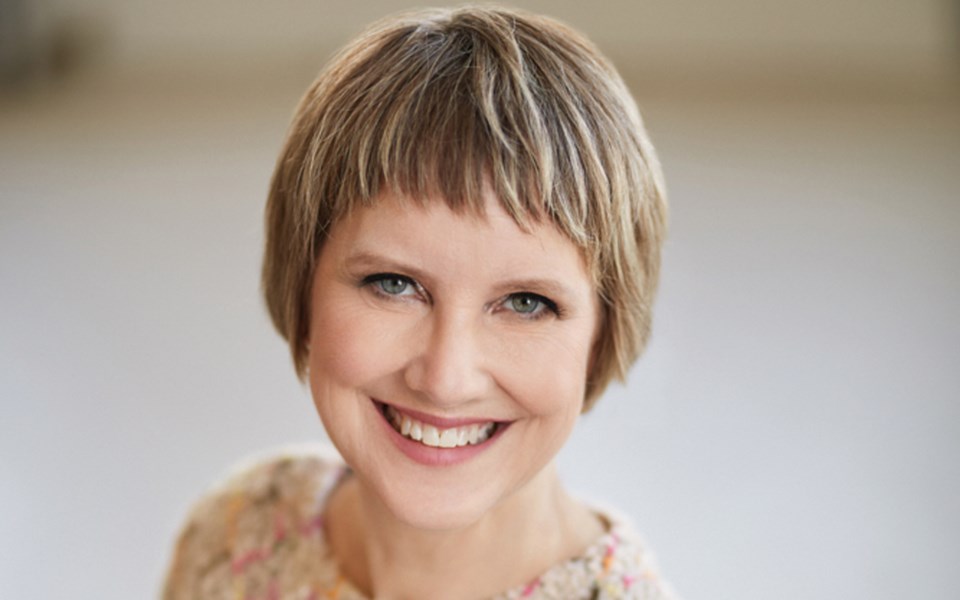In case you needed proof of Angela Heck’s Whistler Film Festival (WFF) bonafides, she was in attendance at the event’s very first edition in 2001 for the now infamous screening of Johnny Thrash’s and John Zaritsky’s legendary documentary, Ski Bums.
“It’s all true, whatever you heard about that screening,” she says with a laugh. Working as a publicist at the time, Heck caught wind of “this great little festival in Whistler that was screening these crazy films” and she couldn’t help but admire the chutzpah. “Good on ‘em for making some pretty radical choices.”
Two decades later and Heck is now the WFF’s executive director, promoted internally this summer after working for the festival in a variety of capacities over the years. Replacing WFF founder and “absolute powerhouse” Shauna Hardy Mishaw, Heck says it was a tremendous honour to take over the reins of an event she holds so near and dear.
“I’ve had such a love for the festival since the beginning, and to move into this role and be trusted with the festival is a big responsibility, but it’s also going to be a ton of fun,” she adds.
Heck takes over at a time of transition both for the festival and the wider film industry, which has had to reckon with the effects of the pandemic and a growing emphasis on streaming. Heck stepped in last fall as the managing director of the 2020 festival, overseeing the WFF’s first fully digital edition.
“It was informed chaos,” she says of the transition. “The transition to a lot of tools and technology was already underway, and the whole pandemic just really accelerated it. We were hoping to still have some in-person screenings but that was not possible and we didn’t find that out until right before the festival, I think in mid-November. It kept us on our toes, for sure. But we did it and we did it very well.”
Heck credited the WFF team and Hardy Mishaw’s guidance for effectively transforming the event on short notice and helping increase the number of (virtual) attendees in what can only be described as an anomalous year. The move to a digital model did come with some other welcome side effects, too.
“It was interesting that we managed to have a much further reach at a national level, so a lot more people became aware of us. We were also able to reach people that might not otherwise be able to join us,” Heck says. “We also had some filmmakers who, whether by geography or other reasons, were not necessarily able to travel, and they could take part in it.”
Heck says the experience gleaned from last year will help inform the WFF’s “hybrid” model moving forward, with plans to continue offering digital options alongside in-person screenings and events (COVID-19 restrictions permitting, of course). Working in tandem with Telefilm Canada, the Canada Council for the Arts and Nordicity, the WFF researched what the future of film festivals could hold in a post-pandemic landscape, with the results released in June. Polling more than 150 participants, with 58 per cent identifying as filmmakers and creators, the study found that 71 per cent of respondents identified accessibility as a key benefit to a virtual film festival, while 64 per cent said audience engagement remains a key challenge. The study also found that the hybrid online/in-person model was here to stay, but that digital festivals were harder to stand out from the crowd in a sea of online and Zoom events, and make it more difficult for creators to establish organic connections leading to networking and sales opportunities.
Heck, a documentary producer in her own right, brings more than 20 years experience in the film and entertainment industry to the table, time that will surely aid in furthering the WFF’s reputation as one of North America’s most filmmaker-friendly events.
“Where we want to go strategically moving forward is doing more of our talent development programs, so you can expect to see more opportunities for people to hone their craft,” she says.
As for the 2021 festival, Heck is keeping her cards close to the chest for now, although plans are expected to be announced in the coming weeks.
“I’m just really excited to get going and see where we land in December,” she says. “We’ve got plans going on for our hybrid edition and we’ll be ready to announce a few things in early September.”
To learn more, visit whistlerfilmfestival.com.




-stills-[1174699]-(1)-copy.jpg;w=120;h=80;mode=crop)
